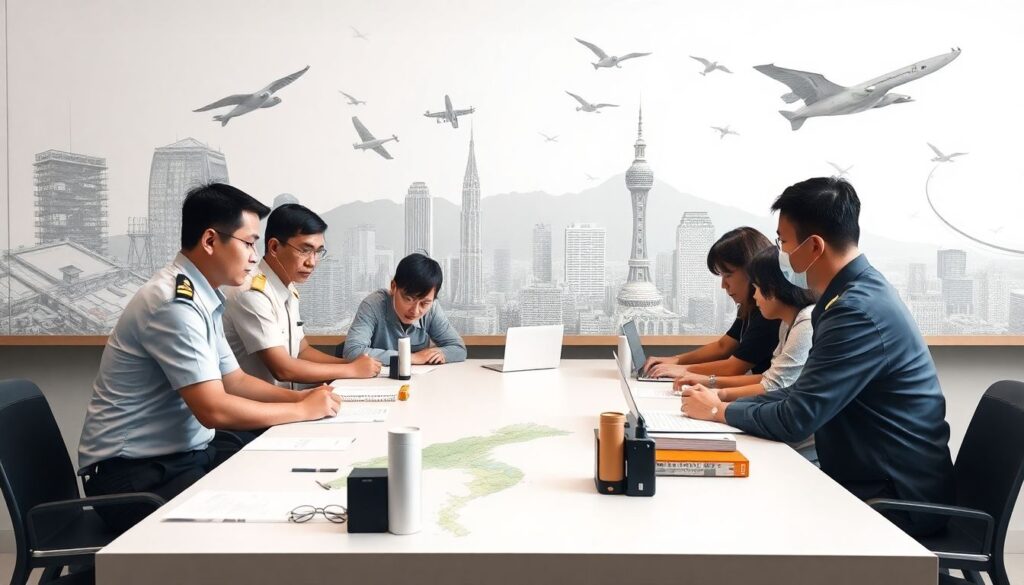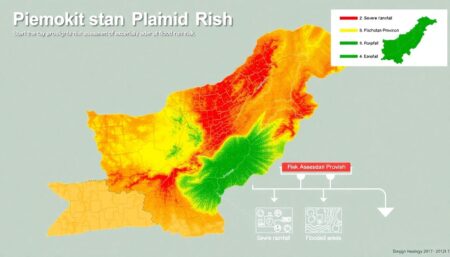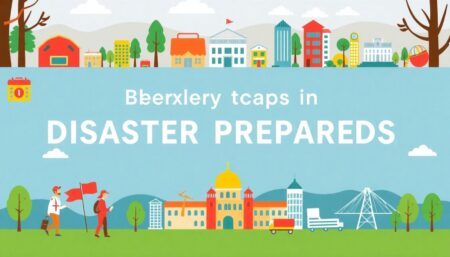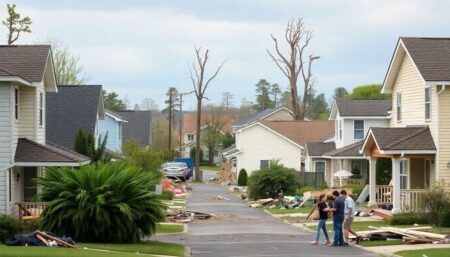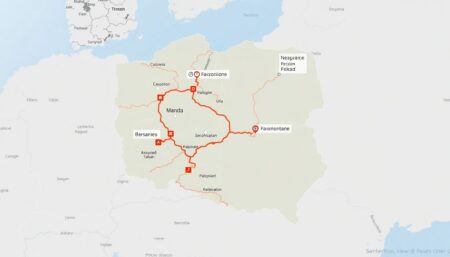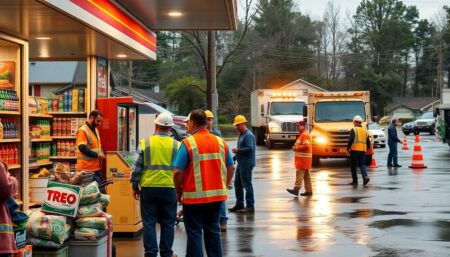Welcome to our in-depth exploration of Taiwan’s recent efforts to bolster its natural disaster and emergency readiness. This article delves into the innovative ‘tabletop exercises’ conducted by Taiwan, highlighting their significance in the face of both natural and man-made challenges. Join us as we uncover the details of these simulations and their broader implications for Taiwan’s resilience and international cooperation.
Exploring the significance of Taiwan’s recent tabletop exercises in enhancing preparedness and fostering international partnerships
Imagine a sprawling room in the heart of Taipei, where a massive table sits, adorned with intricate maps, color-coded charts, and stacks of reports. Gathered around are Taiwan’s sharpest minds: government officials in crisp suits, private sector representatives with their sleeves rolled up, all leaning in, eyes scanning the table, engrossed in intense discussion. This is not your average board meeting; this is a tabletop simulation exercise, a dance of strategies and countermeasures in the face of potential catastrophes.
In the background, screens flicker with looping footage of nature’s fury: typhoons barreling towards the coast, earthquakes shaking the ground, floodwaters surging through streets. These images serve as a stark reminder of the real-world context, the ever-present threat of natural disasters that Taiwan must be prepared to face. The atmosphere is tense, but there’s a palpable sense of purpose, a collective resolve to protect their nation.
As the scenarios unfold, the group grapples with tough decisions. Should they evacuate a coastal town in the path of a super typhoon? How will they coordinate rescue efforts if a magnitude 7 earthquake strikes? Each hypothetical demands careful consideration, drawing on the unique expertise of those present. There’s a sense of urgency, a race against time, but also a spirit of collaboration, a unity of mission that transcends job titles and affiliations.
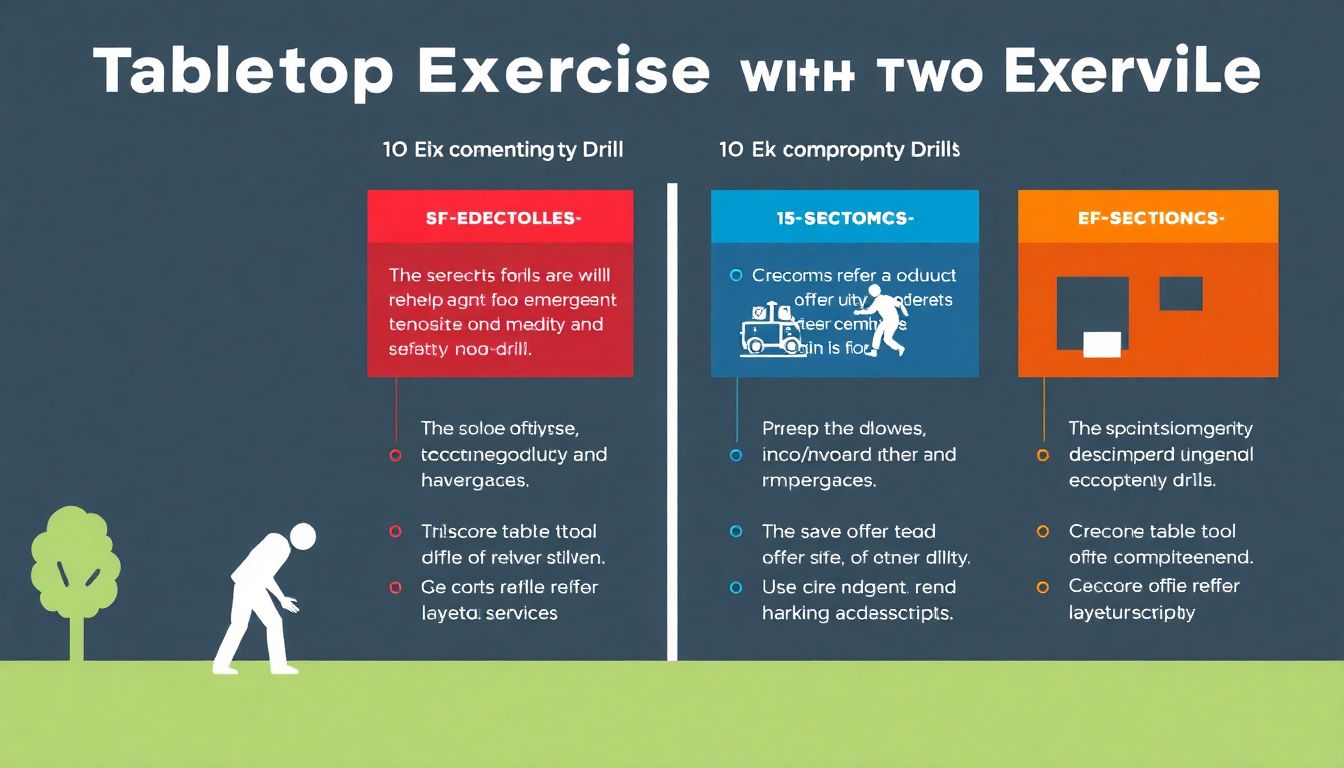
Understanding Tabletop Exercises
Tabletop exercises are a powerful tool in emergency preparedness, often compared to other drills like full-scale exercises or functional drills. Unlike these other types, tabletop exercises are discussion-based sessions where team members meet in an informal, low-stress environment to discuss their roles during an emergency and their responses to a potential incident.
The key difference between tabletop exercises and other emergency preparedness drills lies in their focus and intensity. Full-scale exercises involve a real-time, realistic simulation of an emergency, complete with actors, props, and live action. Functional exercises, on the other hand, test specific functions or aspects of a response plan, such as communication or evacuation procedures. In contrast, tabletop exercises are more abstract and conversational, allowing participants to talk through their actions and decisions in a hypothetical scenario.
The benefits of tabletop exercises are manifold, making them an essential component of emergency preparedness planning. Here are some of the key advantages:
-
Enhanced Coordination:
Tabletop exercises bring together representatives from various departments, agencies, and organizations to discuss their roles and responsibilities. This interdisciplinary approach fosters better coordination and understanding among response teams.
-
Improved Decision-Making:
By discussing potential scenarios and responses, participants can identify gaps in their planning, clarify roles, and refine their decision-making processes.
-
Cost-Effective:
Tabletop exercises require minimal resources, making them a cost-effective way to prepare for emergencies. They can be conducted in a conference room or virtually, eliminating the need for expensive props, actors, or specialized equipment.
-
Flexible and Adaptable:
Tabletop exercises can be tailored to address a wide range of scenarios, from natural disasters to cyber-attacks. They can also be adapted to suit the specific needs and goals of an organization.
Moreover, tabletop exercises help build a culture of preparedness within an organization. By engaging in these discussions, participants become more aware of their roles and the importance of emergency planning. They also foster a sense of teamwork and shared purpose, which can significantly improve response capabilities during a real emergency. Investing time and resources in tabletop exercises can ultimately save lives, protect property, and enhance an organization’s overall resilience.
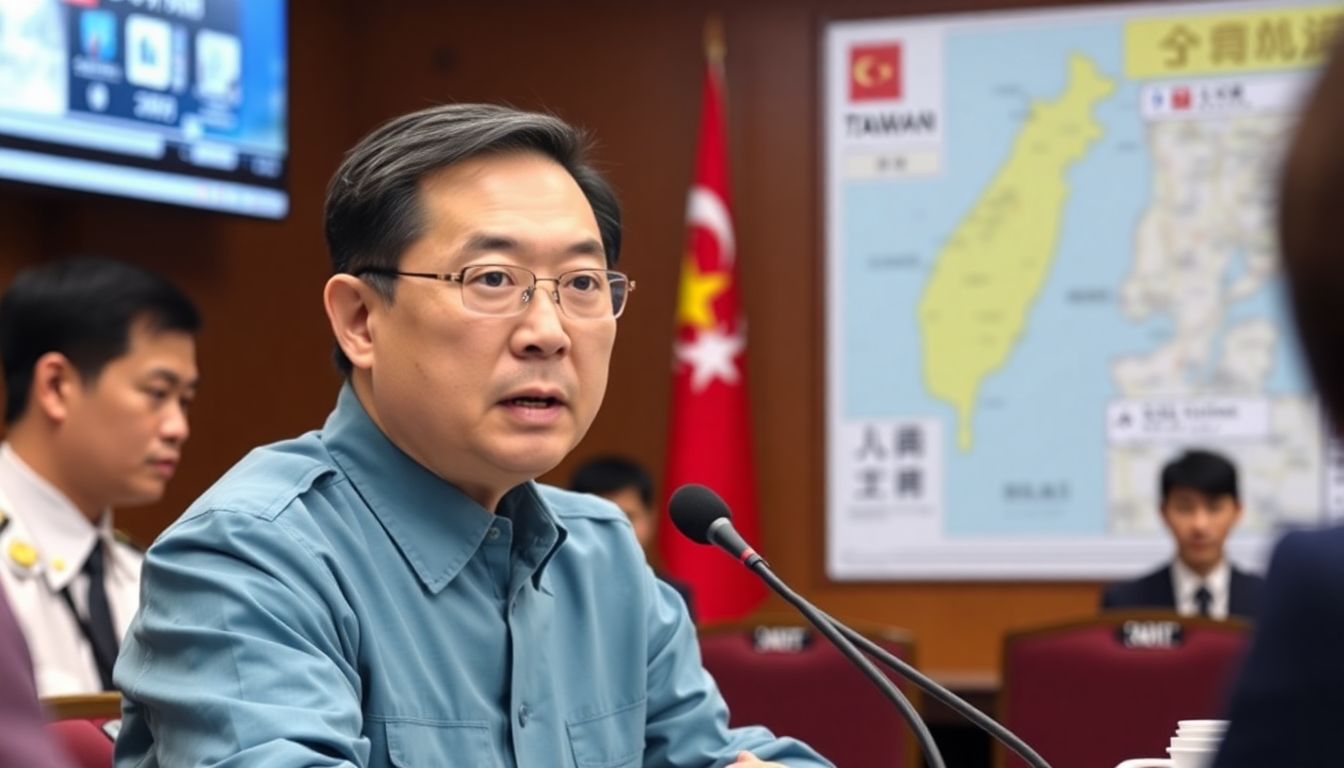
Taiwan’s Commitment to Resilience
Taiwan recently conducted a series of high-stakes tabletop exercises, bringing together a diverse range of participants to enhance the nation’s preparedness and resilience. The simulations involved key figures from various sectors, including government officials, military leaders, emergency responders, and critical infrastructure operators. The goal? To test and refine Taiwan’s response mechanisms in the face of potential crises, ensuring that all systems are primed and ready to act cohesively when it matters most.
The exercises, codenamed “Resilient Taiwan,” simulated a variety of complex scenarios. These included:
- Natural disasters: Typhoons, earthquakes, and other environmental challenges that frequently threaten the island.
- Cyber attacks: Intrusions targeting critical infrastructure, such as power grids and communication networks.
- Military aggression: Potential threats from neighboring regions, underscoring the importance of swift and coordinated defense strategies.
Each scenario was designed to push the boundaries of Taiwan’s current capabilities, identifying gaps and areas for improvement.
In the context of Taiwan’s geopolitical situation, these exercises are not just important—they are crucial. The island’s strategic location and complex political dynamics make it a focal point for potential conflicts. Enhancing resilience is more than just a precaution; it’s a necessity. By fostering interagency cooperation and streamlining response protocols, Taiwan is fortifying its ability to withstand and recover from disruptions, whether they stem from natural causes or man-made threats.
Moreover, these tabletop exercises serve as a stark reminder of the need for proactive measures. They encourage continuous learning and adaptation, ensuring that Taiwan remains one step ahead in an ever-evolving landscape. By investing in preparedness today, Taiwan is building a stronger, more resilient future—one that can weather any storm and emerge even more robust than before. This proactive stance not only bolsters domestic security but also sends a clear message to the international community about Taiwan’s commitment to stability and self-reliance.
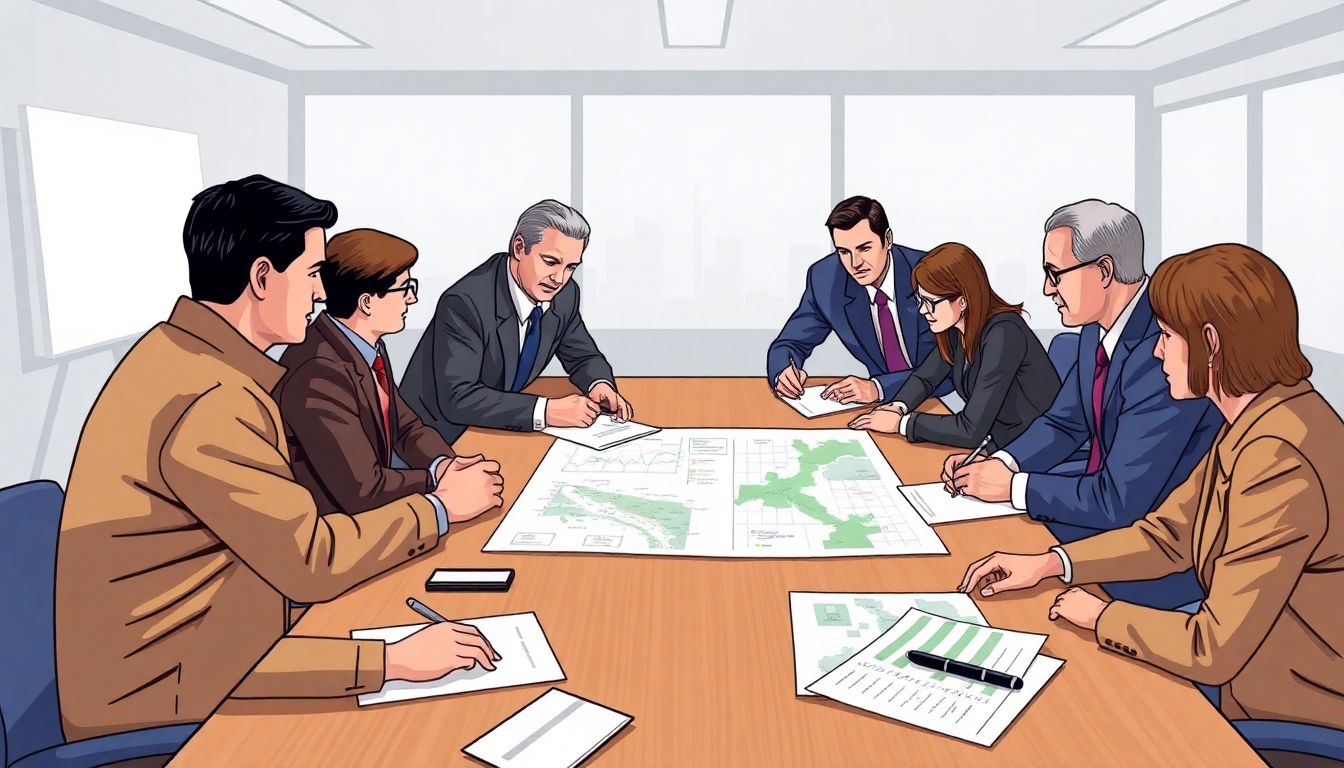
Beyond Military Support
Conducting civil defense exercises in the civilian domain without military support is a significant step towards empowering local communities and enhancing Taiwan’s overall resilience. This approach fosters a sense of self-reliance and preparedness among civilians, ensuring that they are not merely passive recipients of protection but active participants in their own safety. By engaging civilians in these exercises, Taiwan can build a robust culture of preparedness, where individuals and communities are equipped with the necessary skills and knowledge to respond effectively during crises.
This strategy aligns seamlessly with international best practices, which emphasize the importance of whole-of-society approach to civil defense. According to the Sendai Framework for Disaster Risk Reduction, adopted by the United Nations, the involvement of all sectors of society—including local authorities, communities, non-governmental organizations, and the private sector—is crucial for effective disaster risk management. By adhering to this framework, Taiwan demonstrates its commitment to globally recognized standards, enhancing its reputation in the international arena.
Civilian-led exercises offer numerous advantages that military-supported drills may not provide. These include:
-
Improved Local Knowledge:
Civilians possess intimate knowledge of their communities, enabling them to identify specific vulnerabilities and resources that military personnel might overlook.
-
Enhanced Communication:
Effective communication is a cornerstone of successful disaster response. Civilian-led exercises foster better communication networks within communities, ensuring that vital information flows efficiently during emergencies.
-
Cost-Effectiveness:
Relying on civilian resources can be more cost-effective than deploying military assets, allowing for the allocation of resources to other critical areas.
Moreover, this approach enhances Taiwan’s civil defense capabilities by promoting a bottom-up rather than top-down strategy. By encouraging civilians to take the initiative, Taiwan can ensure that its disaster response mechanisms are more flexible, adaptable, and resilient. This decentralized approach reduces the burden on central authorities and military personnel, allowing them to focus on larger strategic goals while civilians handle local emergencies effectively.
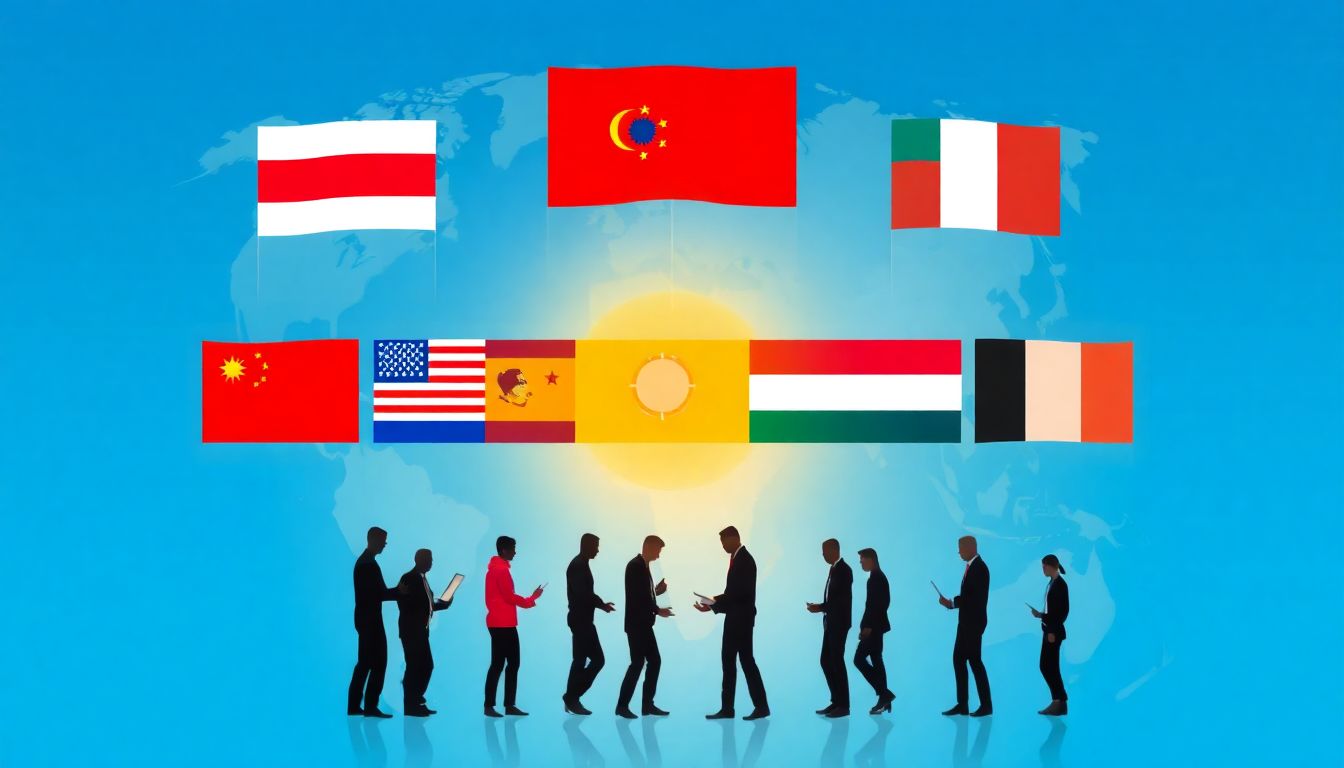
Fostering International Partnerships
Taiwan’s strides in building resilience, from fortifying its democracy to enhancing its disaster response mechanisms, have not only bolstered its domestic landscape but also amplified its international standing. By championing values such as freedom, human rights, and rule of law, Taiwan is forging a path that naturally aligns with countries sharing similar principles. This shared value system serves as a firm foundation for robust international partnerships. Take, for instance, Taiwan’s commitment to transparency and open governance, which resonates with countries like Canada and New Zealand, both renowned for their strong democratic institutions and commitment to human rights.
The potential for cooperation between Taiwan and like-minded countries is immense and multifaceted. Here are a few areas ripe for collaboration:
-
Public Health:
Taiwan’s exemplary handling of the COVID-19 pandemic has garnered global praise. By sharing its expertise in epidemic control and preventive measures, Taiwan can help other countries strengthen their public health systems.
-
Renewable Energy:
As Taiwan transitions towards renewable energy, it opens avenues for cooperation with countries like Denmark and Germany, both leaders in green energy technologies.
-
Technology and Innovation:
Taiwan’s thriving tech industry can foster partnerships with innovation hubs like Israel and South Korea, paving the way for joint ventures and R&D collaborations.
Such alliances bring with them a myriad of benefits, the most significant being the collective ability to tackle global challenges more effectively. For example, cooperation in public health can enhance global pandemic preparedness, while collaboration in renewable energy can accelerate the world’s transition towards a low-carbon future. Moreover, these partnerships can foster a network of support for Taiwan’s international participation, amplifying its voice in global forums.
Furthermore, these alliances can facilitate cultural exchanges, fostering mutual understanding and goodwill among nations. They can also bolster economic ties, opening up new opportunities for trade and investment. As Taiwan continues to build resilience and strengthen its international partnerships, it not only secures its own future but also contributes positively to the global community. In an interconnected world grappling with complex challenges, Taiwan’s proactive stance serves as a beacon of responsibility and cooperation.
FAQ
What are tabletop exercises and why are they important?
Who participated in Taiwan’s recent tabletop exercises?
How do these exercises align with international best practices?
What is the significance of these exercises in the context of Taiwan’s geopolitical situation?
How can these exercises strengthen Taiwan’s international partnerships?
- Enhancing Resilience: As Taiwan becomes more resilient, it becomes a more reliable partner in facing global challenges.
- Shared Values: Countries that share similar values are more likely to assist Taiwan in tackling various challenges.
- International Cooperation: Strengthening emergency response capabilities can lead to more effective cooperation with international partners.



